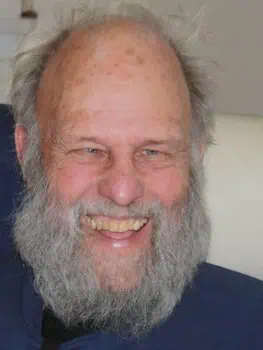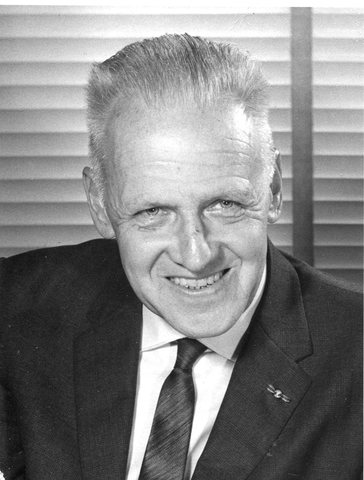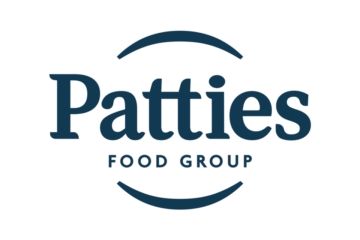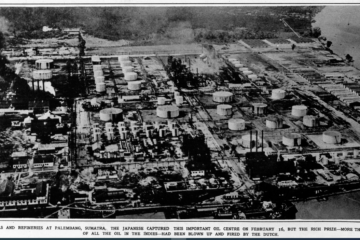Johannes Jan Nicolaas de Voogd, known as Jan, was born in January 1932 in Japan to Dutch parents, Nicolaas Arie Johannes (Niek) de Voogd (1899-1977) and Amarintia Clasina de Vries (1903-1998). Jan’s parents married in 1930 in Kattendijke in Zeeland, the Netherlands. At the time his father Niek was an interpreter at the Dutch embassy in Tokyo, Japan. Later, Niek is reported to have been the Dutch consul in Kobe. Because of his father’s work, Jan grew up in Japan. As a young child he learned Japanese and studied at a Canadian school, where he also learned English.

Jan lived in Japan until 1941, when he was evacuated to Canada with his mother and brother, due to Japan’s involvement in the Pacific theatre of war during the Second World War, which had broken out in Europe two years previously. In Canada the family lived in Toronto, and Jan has memories of the Second World War. In an interview in 2016, Jan told Rae Litting that theirs was “the last ship to carry passengers before the Second World War started in the Pacific. He [Jan] was 9 years old […] The Dutch ship only narrowly escaped being caught by a German raider because the captain made it difficult for the raider to follow accurately by heading straight into the sun. The slower ship managed to escape when it was able to hide in a rain squall.”
Jan also remembered an anecdote about his father Niek during the war. He told Litting that his father “was responsible for saving the lives of 4000 Jews who had escaped from Europe via Russia. Many of these refugees had been helped by a Japanese consul, Chiune Sugihara, who was working in Lithuania. Sugihara produced thousands of hand-written transit visas permitting the holders to travel to Japan. However, before entering Japan, they were meant to have a visa to enter a third country. Jan’s father met the refugees and issued them with visas to travel to Curaçao in the Dutch West Indies.” In a post on the Quaker website The Australian Friend in 2018, Jan remembered his father as “inclusive and generous in Spirit, which was a blessing his brother and sister (my aunt and uncle) shared. He taught me to look at things from the point of view of those on “the other side”. As a diplomat he felt it was his role not only to represent the Netherlands but also the country where he had been placed.”

After the end of the Second World War Jan’s family moved again as his father Niek was posted to different countries, first to the United States of America, then the Netherlands, and later China. Jan spent two years in China between 1949 and 1951. In 1951 he was evacuated to Australia amidst fears that the Korean War (1950-1953), which by then had been going for some time, would escalate. In the early 1960s Jan spent time in New Zealand. Pat Reesby remembered of this time, “Jan taught me how to make coleslaw and I tried once to produce sounds from his oboe but with no success. I think he kept a sailing boat in the boat harbour.” By 1966 he was working in Australia as Assistant Education Officer, Third Division, in the New South Wales Department of Education.
In Australia Jan became involved in music, environmental and political activism, and religious activities. He was an avid musician and learned to play the oboe in his twenties before joining orchestras that toured in Australia and New Zealand. Later, he became a teacher. Throughout his life he kept up an enduring hobby of building his own boats and sailing them. These boats were also involved in his activism: Jan told Rae Litting that he sailed his own hand-built boat Duyfken (not to be confused with the replica ship built by the 1606 Duyfken Replica Foundation) in the Peace Squadron alongside other boats, including a Greenpeace ship. In his later years Jan remained active in his community, lodging a submission to the NSW Portfolio Committee No.6 (Transport and the Arts) on their inquiry into local government in New South Wales in 2015. He lived at McMahons Point, north Sydney, and enjoyed the community there, but was concerned about over-development.
Jan de Voogd passed away in January 2021 at the Royal North Shore Hospital in Sydney, aged 89. In his will he bequeathed a sum of money to fund projects expressing the Quaker values of “Simplicity, Peace, Integrity, Community, Equality and Sustainability”. The Jan de Voogd Peace Fund was administered until 2023 by the NSW Regional Meeting of the Religious Society of Friends.
Sources:
- Certificate of marriage of Nicolaas Arie Johannes de Voogd and Amarintia Clasina de Vries, retrieved from WieWasWie
- Jan de Voogd, “When love and compassion overcome fear and hatred”, The Australian Friend, 4 June 2018, https://australianfriend.org/when-love-and-compassion-overcome-fear-and-hatred/
- Rae Litting, “Know Thy Friend: Jan de Voogd”, The Australian Friend, 5 June 2016, https://australianfriend.org/know-thy-friend-jan-de-voogd/
- Miriam Pepper, “Jan Voogd’s legacy of compassion”, 7 May 2024, https://www.unitingearthweb.org.au/2024/05/07/jan-de-voogds-legacy-of-compassion/
- Miriam Pepper, “Jan de Voogd’s legacy of compassion”, 31 May 2024, South Sydney Herald, https://southsydneyherald.com.au/jan-de-voogds-legacy-of-compassion/
- “Appointments, Retirements and Dismissal”, Commonwealth of Australia gazette, 11 August 1966, sourced from TROVE.
- “Local government in New South Wales”, Parliament of New South Wales, https://www.parliament.nsw.gov.au/committees/listofcommittees/Pages/committee-details.aspx?pk=198#tab-inquiries
- Obituary in The Sydney Morning Herald
- Find A Grave memorial
- “Webinar: Jan de Voogd Peace Fund launch”, Quakers Australia, https://www.quakersaustralia.info/events/webinar-jan-de-voogd-peace-fund-launch
- Jan de Voogd Peace Fund, Quakers Australia

